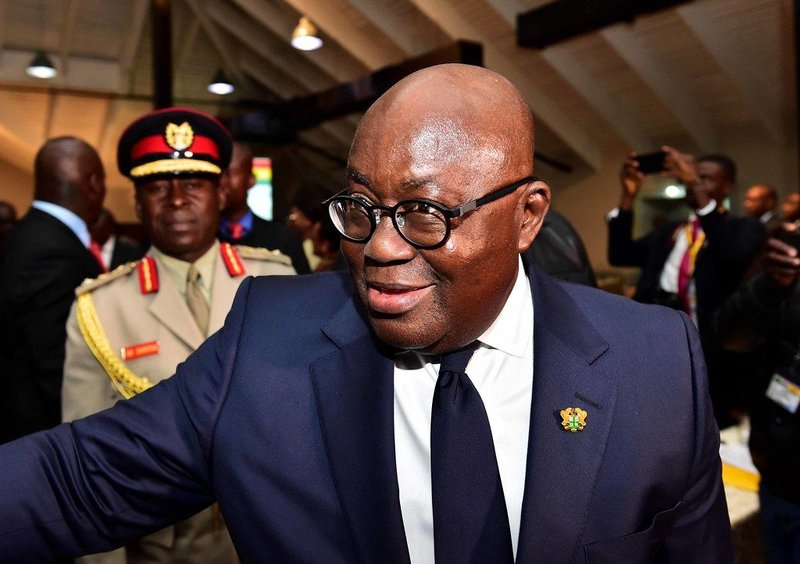
It is difficult to imagine the pain of those suffering the advanced stages of blinding trachoma. The eyelashes start growing inwards so they scratch the eyeball.
It is, one sufferer said, “like having acacia thorns poking at your eyes every second, all day long”.
Think about that for a moment and imagine the excruciating pain every time you blink. Then think about how many times you have blinked since starting to read this article.
In Ghana, we know this disease. Our parents’ generation knew it all too well. In the 1990s, it was rampant in our nation.
But I am delighted to report that last year, after a big effort involving our Ministry of Health and several international organisations who helped us out, Ghana eliminated blinding trachoma – and we have a World Health Organisation (WHO) validation certificate to prove it!
In February, I attended the African Union Summit in Addis Ababa. There was plenty of politics to discuss. But there was also an important discussion at the Summit, a discussion which may well be relevant to our people on the continent
At the gathering of heads of state, we reviewed Africa’s progress in fighting neglected tropical diseases (NTDs), alongside malaria, under the leadership of the African Leaders’ Malaria Initiative (ALMA).
NTDs are a group of diseases that includes blinding trachoma, and which are now almost unheard of in the west.
They are a consequence of poverty occurring in remote areas where sanitation is poor and good quality water is in short supply. But they are also a cause of poverty; their debilitating symptoms stop children from going to school or adults going to work, robbing developing countries of billions of dollars in productivity.
The Sustainable Development Goals (SDGs), of which I am a strong advocate, challenge us to leave no one behind, to ensure that we are delivering for the poorest people on the continent. If we do not reach people suffering from NTDs, we will simply not achieve the SDGs.
Our Africa 2063 agenda has a target to end these diseases of poverty.
Therefore in Addis Ababa, we reviewed progress across the five most common NTDs that are amenable to mass treatment: blinding trachoma, bilharzia, mosquito-borne elephantiasis, intestinal worms that stunt the growth of children and river blindness.
Together these five diseases affect more than 600 million people in Africa – nearly half of the entire population of the continent.
Building on our success of eliminating Guinea worm disease in 2015, Ghana eliminated blinding trachoma last year.
But I want Ghana, and all of Africa, to go further.
Ghana is a modern, democratic state. We have gone through significant economic growth for several years. I believe we can use that growth – along with well-targeted and well-funded health programmes – to eliminate other diseases. I want other African nations, many of them fast growing democracies like ours, to have similar ambitions.
I am aware that, while Ghana eliminated blinding trachoma last year, our ‘scores’ in treating some of the other NTDs have been dipping down in the last couple of years.
We were pulled up for that on the NTD scorecard. But Ghana doesn’t shy from constructive criticism; we are strong enough to take that. I want those scores to go back up to being among the best on the continent and I commit here to achieving this. Our fellow citizens deserve nothing less – they are among the 600 million people in Africa who still suffer from at least one NTD.
The World Health Organisation has a bold new plan running from 2019 to 2023. Among other things, it aims to eliminate at least one NTD in 30 endemic countries. I want to challenge Africa to achieve at least half of those 30 eliminations. That’s ambitious but eminently doable.
We have many challenges as a continent. But at the same time many African countries have double digit economic growth and healthy democracies which are accountable to those poorer citizens, who tend to be among the most vulnerable to NTDs.
I am a co-chair of the UN Secretary General’s ‘Advocates’ for the Sustainable Development Goals, an honour I share with the Prime Minister of Norway, Erna Solberg.
A key goal is SDG 3.3, which includes a commitment to end NTDs by 2030. My challenge to Africa to eliminate at least one NTD in at least 15 African nations by 2023 would be a great push towards the ultimate goal.
I recall the origins of the SDGs. They emerged from an earlier idea to improve the lot of humanity, the Millennium Development Goals.
The driving force behind the Millennium Development Goals was another fellow Ghanaian, a man dedicated to justice and equity, the late UN Secretary General, Kofi Annan.
Kofi Annan would have expected us to continue his work to help the poorest and most vulnerable, especially those affected by NTDs.
We owe him no less.